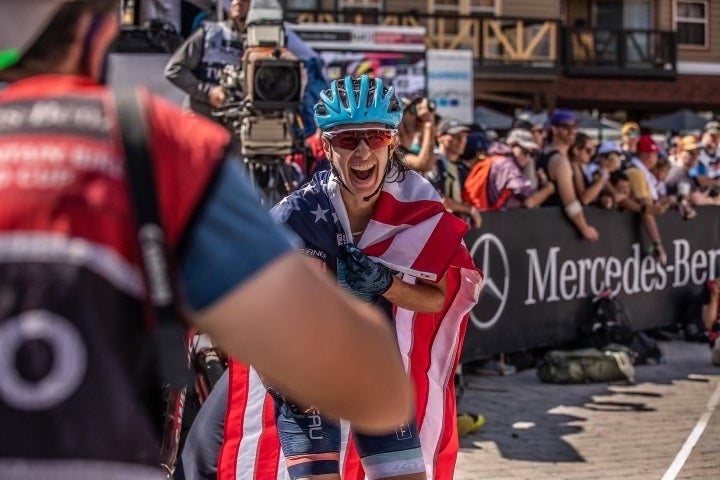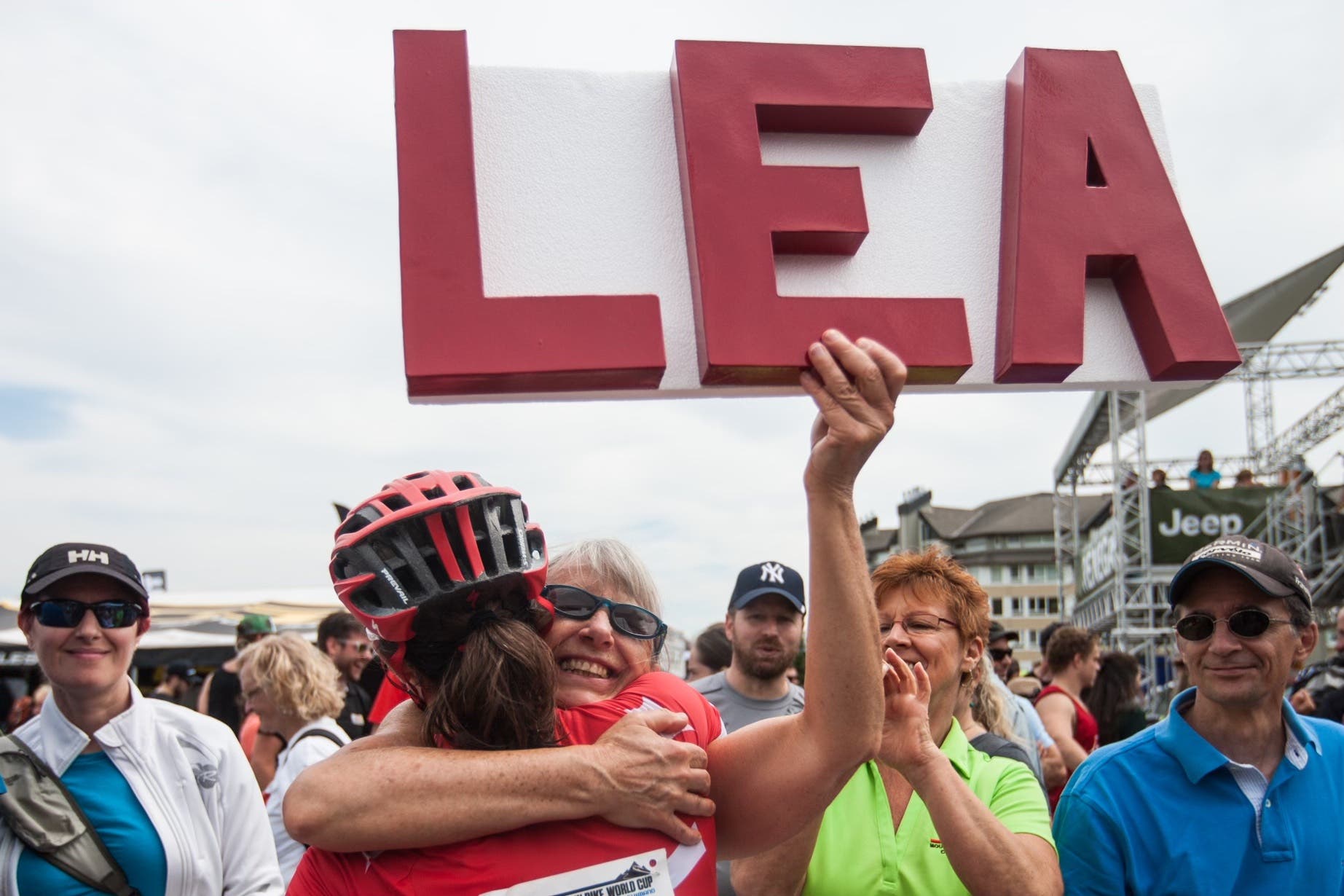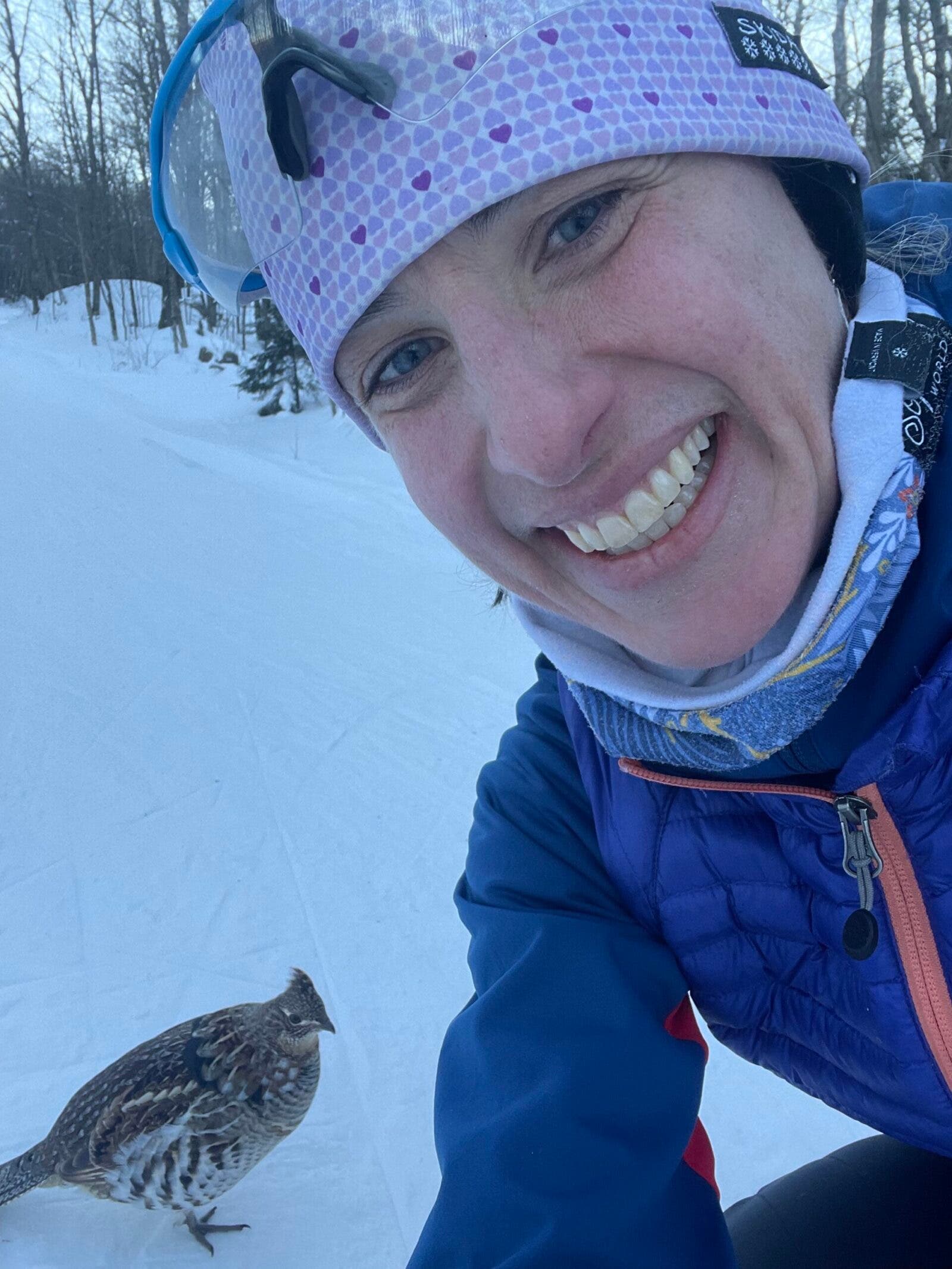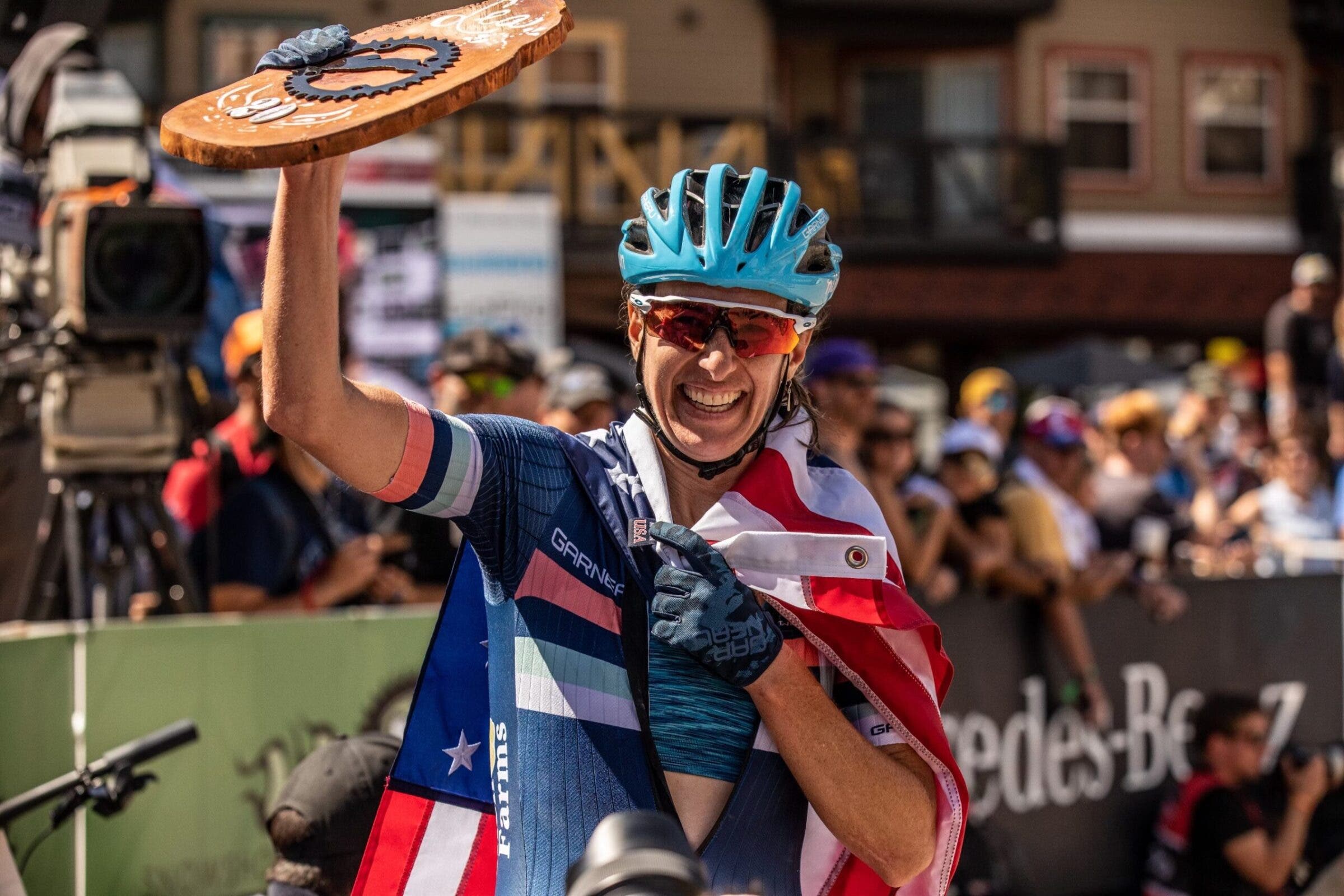How Lea Davison is transforming Olympic heartbreak into retirement joy

(Photo: Courtesy Lea Davison)
Last week, Lea Davison announced her retirement from international mountain bike racing.
After a career that spanned 20 years, including two Olympic Games, five national championship titles, and multiple world championship podium finishes, Davison leaves behind a lasting legacy in the sport. Yet in many ways, a new story is already forming in its wake.
And, Davison’s new chapter began exactly where some may have closed the book entirely.
While it may be easy to draw a line between Davison not making the Tokyo 2021 team and her decision to retire this year, the 38-year-old noted that her trajectory was toward retirement after she’d made the Olympic team again, and had a better finish than her seventh place at the Rio games in 2016.
“I felt like I was on a progression,” Davison told VeloNews.
“I had a very loose plan to finish my Olympic journey, for lack of better words to describe it. In London I came in 11th, Rio I came in seventh, and I was like, ‘OK, this is a great progression, let’s win an Olympic medal, mic drop.'”
When she didn’t qualify for Team USA, Davison was left holding the mic.
But, the 38-year-old was not one to let adversity slow her down. Davison wanted to wrestle the narrative back into her control so that when she did decide to retire, it was on her own terms.
“So last season turned into ‘OK, I know what I’m capable of,'” she said. “‘I’m not going to let the selection committee or anyone define what I’m capable of. And I’m gonna prove it.’ It was like, ‘I’m gonna do this for myself to get some closure. I’m gonna show up at a World Cup start line and have the type of race I know I’m capable of.'”

At Snowshoe, the last World Cup of the 2021 season, Davison did just that. She finished 11th, the highest position of any American woman at the race.
Not only was it a result she was proud of, something else began to take root in Davison in West Virginia that weekend. She had friends and family at the race, as well as scores of other fans she didn’t know. They held signs and yelled her name. When she went home to Vermont and signed up for some local races, it was more of the same.
“The reception I got was so kind and so incredible,” she said. “Everyone was psyched to see me, and even if they didn’t see me they’d send me messages, ‘oh it’s so cool we’re doing the same races.’“
After 20 years of racing in Europe, Davison rarely had a chance to race in the U.S. So, instead of viewing retiring from international racing as a downgrade, she sees her retirement from the World Cup as an advancement.
“So after 20 years I’m gonna really get to race in the U.S. for a whole season in this burgeoning scene that has so much energy? That’s a really exciting thing.”
‘This is not a World Cup’
One of Davison’s plans for her first year of retirement is to race the Life Time Grand Prix series. She was one of 30 women selected for the inaugural race series, and she sees the upcoming season in two ways: one, as a weaning-off from bike racing (see Ruth Winder’s great untraining), and two, as a way “to have some fun and have a positive impact.”
You can’t take the bike racer out of the girl as easily as you can take the girl out of bike racing, and Davison admits that racing “is my jam.” Yet she also has a new mantra when it comes to the mental and physical responsibilities of staying race-ready.
“This is not a World Cup.”

After 20 year of living under the pressures associated with being a World Cup mountain bike racer, Davison is reveling in what is trickling up to the surface in their absence. In addition to time — which she has primarily been using to ski and bake — Davison can focus on other things, often bike-adjacent, that are important to her.
“My energy is opening up,” she said.
While she’ll be racing for wins at the Grand Prix, Davison will also be using the appearances as opportunities to raise awareness for causes near and dear to her heart. At each of the six events, she’ll debut a new kit from her longtime sponsor Garneau that highlights a non-profit organization working in women’s empowerment, LGBTQ+ rights, and the environment — “my passions,” she said.
Davison will also continue to serve on the board and executive committee of Little Bellas, the organization she co-founded with her sister and a friend in 2007.
Yet the project Davison is most excited about will happen away from the races and trails. In fact, for this new endeavor she’ll have a microphone in hand — and it’s very much the mic that did not drop after her hypothetical Olympic medal last summer.
Resilience and beyond
Davison’s Olympic heartbreak was part of both a personal and collective misfortune. After Kate Courtney and Haley Batten nabbed two Team USA spots with automatic qualification, one spot was left — with three worthy contenders.
In June, the third position was awarded to Chloe Woodruff. However, she resigned from the Olympic team just weeks later. In the meantime, Erin Huck had launched a legal appeal against USA Cycling’s selection. Huck won the appeal and took the spot vacated by Woodruff.
Meanwhile, Davison watched the drama unfold from the sidelines as she nursed her own broken heart. Not only had she missed the selection, but she was also watching fracture lines erupt in the foundation that she, Woodruff, Huck, and Courtney had built in the years leading up to the selection. The four trained together and chased points at UCI races around the world, which is ultimately how the U.S. ended up with three spots on the Tokyo team.
“I would say the whole thing, how it played out and worked out was such a shame really,” Davison said. “And heartbreaking for everyone involved. It took a really beautiful thing that we’d accomplished, mostly the three of us coming together and devising a plan to get those three spots.
“It was such a beautiful thing of creating a team in an individual sport. I tend to land on that. Of course there was a whole emotional process with myself not being selected and then seeing the whole thing play out like that and maybe leave a bad taste in people’s mouths. It was such a shame and did not have to be like that. So I just land on, ‘we did something cool to get three spots and I was part of that effort.'”

After the Olympics, as Davison shifted focus back to World Cups and eventually doing some races back in the U.S., she found time to do something else, as well: she took a public speaking class.
And, what she was learning about resilience in real time jumped straight onto the page. Davison wrote her keynote speech for the class about her experience striving for, and not achieving, a third Olympic Games.
“It’s about the whole experience going through that and how I survived,” she said. “It’s all about taking a big swing and sometimes you miss and how do you pick yourself up from that? That’s something as humans that we can all relate to. That gave me a gift of a very relatable speech on resilience.”
Davison has given the speech once and has plans to deliver it at more venues this year, including at Rooted Vermont’s upcoming women’s gravel camp. She is stoked on a potential career in public speaking. In general, Davison is stoked.
“You just never know what’s going to come out of some kind of missed opportunity or a time of change,” she said.
Mic drop.